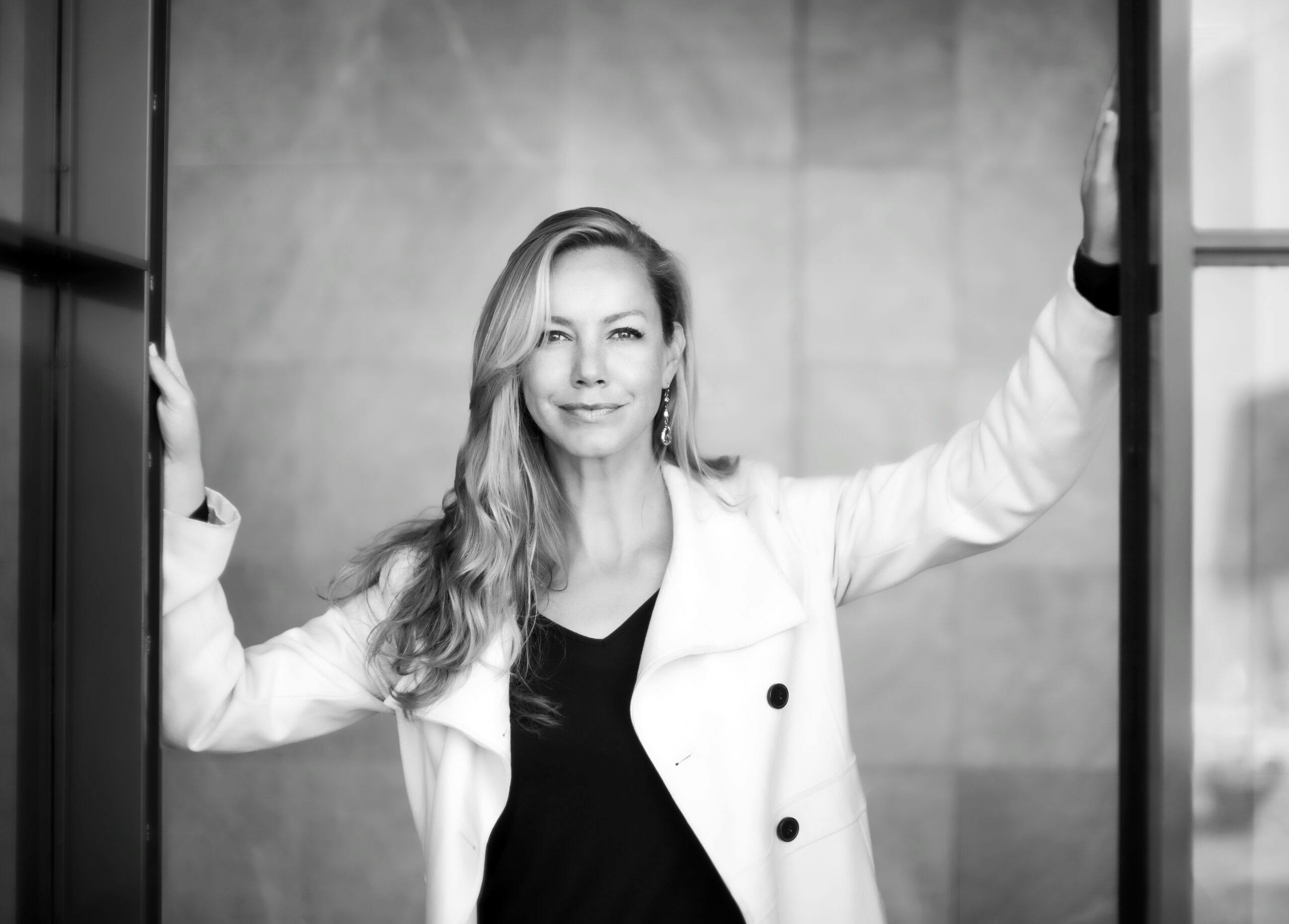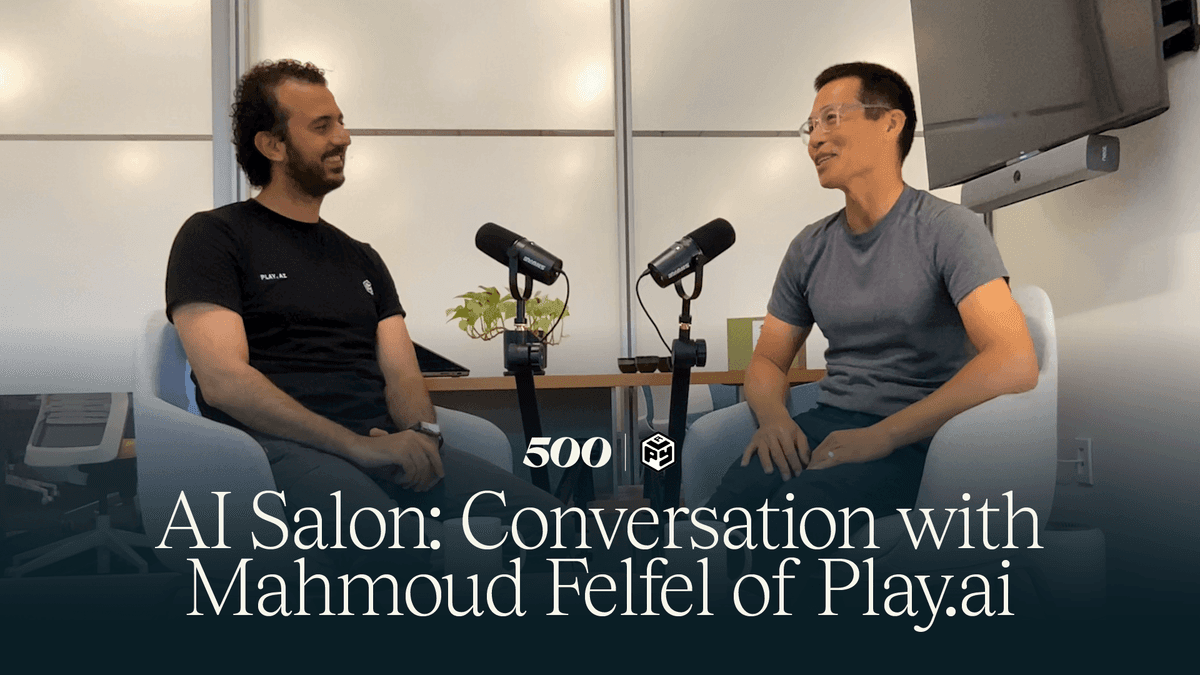2018.06.15

500 Global Team

Rebecca is an Entrepreneur-in-Residence and Venture Partner at 500 Startups. In 2011, she launched a health tech startup called CakeHealth as a TechCrunch DISRUPT finalist to help individuals track their healthcare expenses without the paperwork. After exiting CakeHealth in 2015, she joined 500 Startups to lead health tech investments for the accelerator program in San Francisco.
Rebecca was an advisor to the Obama administration for health data standards and was also recognized as one of 70 Digital Leaders by the United Nations in 2015. She has been featured in publications like Forbes and Inc. Magazine.
Why did you join 500?
I first joined the 500 family as a founder in 2011, when 500 Startups invested in my company, CakeHealth. I immediately saw how supportive the 500 team was of founders, particularly underdogs like myself.
After exiting my company in 2015, I really wanted to give back to the community and support the entrepreneurs that were starting their journey for the first time, so I started mentoring and volunteering my time for companies going through the accelerator. The timing was perfect since the venture partners at 500 wanted to invest more in digital health and health IT, so they proposed the idea of running a health track as part of the accelerator program. I couldn’t think of a more perfect fit for helping to build out support for the ecosystem.
What’s your role at the firm?
My role is twofold. I’m an Entrepreneur-in-Residence, supporting companies in the accelerator program with common issues around building a startup and the path to fundraising. I’m meeting with the founders on a weekly basis to take a pulse on the health of their business, work through any issues they are currently facing, and guide their strategy. In the health tech space, I can be particularly helpful with strategy for those companies.
The other role I have is as a Venture Partner, so I am looking for deals and qualifying them for investment and fit for the accelerator program. While I’m often an influence in decisions for any company coming through the accelerator, I’m the final decision maker for companies that will be accepted into the health track.
What’s been the biggest challenge transitioning from a founder to an EIR/venture partner?
Entrepreneurs tend to be optimists, looking at all the various ways to make something possible. VCs tend to be pessimists, poking holes in businesses and looking for all the ways an idea will fail. I still tend to have more of an optimistic view of the world, which complements the nature of being so early-stage in our investments, but I have had to learn to poke those holes into the businesses we evaluate. At the end of the day, if I can articulate everything that is risky with the business and still be willing to do the investment for certain reasons, then I will do it.
In addition, I tend to see trends that can go into the 10s of years, so it’s often a challenge for me to bring my focus back to the present and invest in ideas that will work in today’s healthcare environment rather than where I think healthcare will be in 10 to 20 years. Striking that balance is difficult, but I’m not sure any investor gets it right versus getting lucky.
What made you focus on the digital health space? What excites you the most about that market?
Many founders who join the health tech space are driven by either a terrible experience, or something traumatic happening to them or their family’s health. That tends to drive a certain passion for change that you don’t see in other industries like gaming or ad tech. I was no different when I started my company, and I had no idea how much change was really needed, but the optimist in me sees all the possible opportunities.
I’m such a data-oriented person, so the thing that gets me most excited is the transition we are seeing in how records are being digitized and new data collected about the body, which have the potential to unlock so many new solutions to the problems that we currently have. It’s just in the infancy and will take decades to see the evolution but having data that is machine readable to begin with will allow us to do so many things around outcomes and truly individualized healthcare.
The healthcare system as “sick” care is not a sustainable model, so I see these data sets eventually becoming decision engines that completely empower people to prevent from getting sick to begin with. This is a problem for every country on the planet, not just for the US. Business models will need to change, and so will policy, but it is where I believe the future is and the system will eventually catch up.
You’ve listened to hundreds of pitches from startups applying to our accelerator program. What are you looking for when you’re interviewing founders?
While there are many things we assess when evaluating a company, a few things float to the top.
Do the founders have some sort of unfair advantage, are they coachable, and how product focused are they vs customer focused.
- Unfair Advantage – This can manifest in a couple of different ways. One way is if they have some sort of exceptional experience or knowledge in their field that gives them an advantage over someone else who might try to build the same thing. Perhaps they already have relationships with their customers from their past. Or have they started successful companies before and therefore are familiar with the challenges and can navigate the startup world exceptionally well – even having exited before.
- Coachable – If we sense that founders take input well, then it will make working with them much easier and we will be able to help them grow their business faster. If we sense that a founder is too defensive, ego-driven, or combative, we will be reluctant to accept them into the program knowing that our advice may not be taken.
- Product vs. Customer-focused – It is relatively easy for founders to build a product these days, and launching features upon features is easier to do. There is a time for product building mode, and there is a time to be customer focused and make the sale. If founders are still building product, it is probably not the right timing to join us. Once they have proven that some customers want what they have built, then they are in the right position for us to help them acquire more. In healthcare this may be one enterprise customer, or several, but there needs to be some demonstration that someone wants the product they are offering.
Are there any examples of startups you’ve worked with through 500’s digital health track that you’re particularly proud of?
There are so many that it’s hard to pick favorites, but I will mention a few names that have made some announcements recently that I can talk about.
Bigfinite raised an $8.5 Million seed round after graduating from the 500 accelerator from investors like Crosslink Capital and Uncork Capital. These founders had an unfair advantage of coming from the pharma manufacturing world.
Siren Care built product that has so many possible applications for the future of wearables. Since graduating from the accelerator, they have raised a $3.4 Million seed round from DCM, Khosla Ventures and Founders Fund.
Zentist has created strong market network effects in the dental markets, which allowed them to raise $2.6M in seed from Point Nine Capital, FJ Labs, FundersClub, and Kima Ventures after the 500 Startups program.
YoDerm’s patient growth has been phenomenal since joining the program, and they closed a $1.7 Million seed round from investors such as FJ Labs as a result.
What’s the most common mistake you see when working with early stage founders?
A common mistake, and one I have been guilty of as well, is scaling too early. There is a time for massive customer acquisition, but if your unit economics are not right, or if your funnels are leaky or your retention is low, then scaling customer acquisition will be too expensive.
Everyone wants the hockey stick growth chart, but it is not the first thing that founders should be focused on. The experiments that should come before acquisition are related to deeper in the funnel, such as conversions and retention.
What advice do you have for founders when it comes to fundraising?
Shows like “Silicon Valley” or movies like “The Network” have given founders the impression that fundraising is easy; that you just meet with a couple of investors and boom, you’re funded. That’s not how it works at all, particularly for first time founders, or those who have just moved to Silicon Valley and don’t have a network.
Founders don’t realize that to raise a pre-seed or seed round, they may need to pitch up to 3-6 investors per day for several months. It really can be a full time job. I always advise these founders to do two things to start with:
- Start with a big target list of investors – 200 names of angels and seed funds. Do your research and don’t start scheduling meetings until you have a list big enough that could fill 25 meetings per week for at least a month. Momentum will be key, and don’t get hung up on “no’s” or “maybe’s”. Just keep moving forward.
- Get to know other founders in your space. Relationships with other founders are your biggest asset, so start networking, have coffee dates, and get to know them. Not only will they provide great input on what they are seeing as far as reasonable investment terms, but could also be your intro to investors when the time is right.
Anything else you want to share?
Our next accelerator program starts in October and applications are open now. We are looking for entrepreneurs from around the world who are making an impact either locally or globally. The program is 4 months long, we invest $150k for 6%, and we help founders build the start of their growth engine that will grow them into a massive business.



